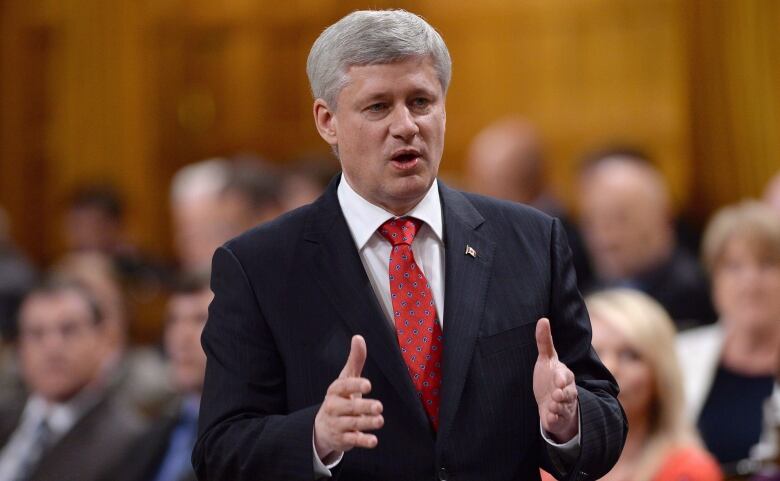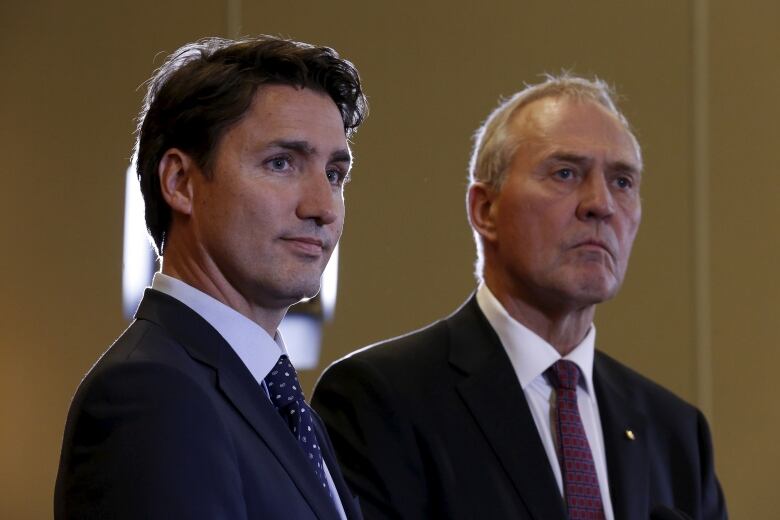Medical marijuana myths exposed as court poses new challenge
Federal court decision still leaves new patients who want to grow their own pot in violation of law

In the opening paragraphs of his groundbreaking medical marijuana decision, Federal Court Judge Michael Phelan is careful to stress what the ruling is not about.
Legalization. Liberalization. Commercialization.
"This case is about the access to marijuana for medical purposes by persons who are ill," Phelan writes.
But, of course, like any part of this country's long and bitterconversation about cannabis, thedecision is about all those things and more.
Ideology and myth
What's striking on a close read of the 109-page document is Phelan's excoriation of the ideology and myths that went into the construction ofthe formerConservative government's medical marijuana production scheme.
And in turn, how much wastedmoney and time havebeen spent defending legislation whose main benefit, as the judge describes it, was to cut costs forthe government of theday.

If you haven't followed the case, the issues at play are actually fairly simple.
Canadianshave a charter right toaccess marijuana for medical purposes.
Licensed patients used to be able to grow their own or designate someone else to do it for them. But the scheme introduced in 2014 forced them to get their pot from a handful of licensed producers instead.
It's not hard to see the conflict that set up between industrial growers andwhat's essentially a grassroots movement of patients who were doing just fine without the help of commercial enterprises.
Marijuana activists saw the regulations as a means to further restrict access to a drug the government characterized as a threat to public health and safety. Never mind what polls suggestedthe majority of Canadians thought.
'Religious fervour' on both sides
Phelan'sruling nailsthe logicalloop that characterized Stephen Harper's approach to marijuana: evidence was needed to make fact-based decisions;there wasn't enough evidence to support marijuana as medicine; and the government wasn't about to commission studies needed to get that evidence.
"Despite the lengthy period for which marijuanafor medicinal purposes has been available, there is a paucity of evidence, particularly from government, in respect of its use and effects," Phelanwrites.
"Marijuana is not treated as a 'medicine' by statute, regulation or policy, and the information gap posed a significant problem."
So into the gap fell theproselytizers.
Phelannotes the almost "religious fervour" of so-called expert witnesses for both sides.
That won't be a surprise to anyone who has ever attendedan over-longpot rally.But the judge also discounted the evidence of a fire chief, belied by statistics showing no elevated risk of fireat licensed grow operations.
And he blasted an RCMP witness who was "so philosophically against marijuana in any form that his report lacked balance and objectivity."
At the end of the day, the evidence the judge did credit came from the four plaintiffs: severely ill people who say licensed growers can't guaranteethem the strains and form of pot they need at prices they can afford.
Phelansays therise of the medical marijuana dispensaries particularly in Vancouver can be traced to the introduction of the new rules.
Common sense, good morals and the law
But in giving the government six months to come up with a new scheme, the judge also handed the Liberalsa series of challenges.
The ruling extends an injunction granted toabout 28,000 people licensed under the old regime.

The government isn't granting any new licences, so anynew patients hoping to grow their own pot are out of luck for the next six months. The dispensaries are still technically illegal. And so is getting your prescription pot from them.
At about the same time Phelan's decision was released, former Toronto police chief Bill Blair was telling Senate Liberals the government has no time frame for its promise to legalize marijuana.
And crucially, they still plan to enforce laws on marijuana possession.
Kirk Tousaw, one of the lawyers responsible for the Federal Court victory,says he has a year's worth ofcharter challenges lined upon behalf of dispensaries from Nanaimo to Montreal.
"This is happening all over the country.After today, I don't think the government has any justification for continuing those cases," he says.
"There's no imperative that the government enforce a law that is known to be unjust and that the government has committed to repealing. In fact, common sense and good morals dictate the opposite response."
The government will also have to contend with the commercial implications of a ruling that enshrines a charter right to an array of medical marijuana products at affordable prices.
It should be interesting to see how that message resonates with entrepreneurshoping tocommercially produce the drug and pharmaceutical chains liningup to join the ranks of illegal dispensaries.
And finally, there is the question of recreational use. That's where the real money is,and it's where the acceptance of marijuana as a medicine is likely to lead Canadians both legally and socially.
But as we all know, this case wasn't about that.












_(720p).jpg)


 OFFICIAL HD MUSIC VIDEO.jpg)
.jpg)



























































































